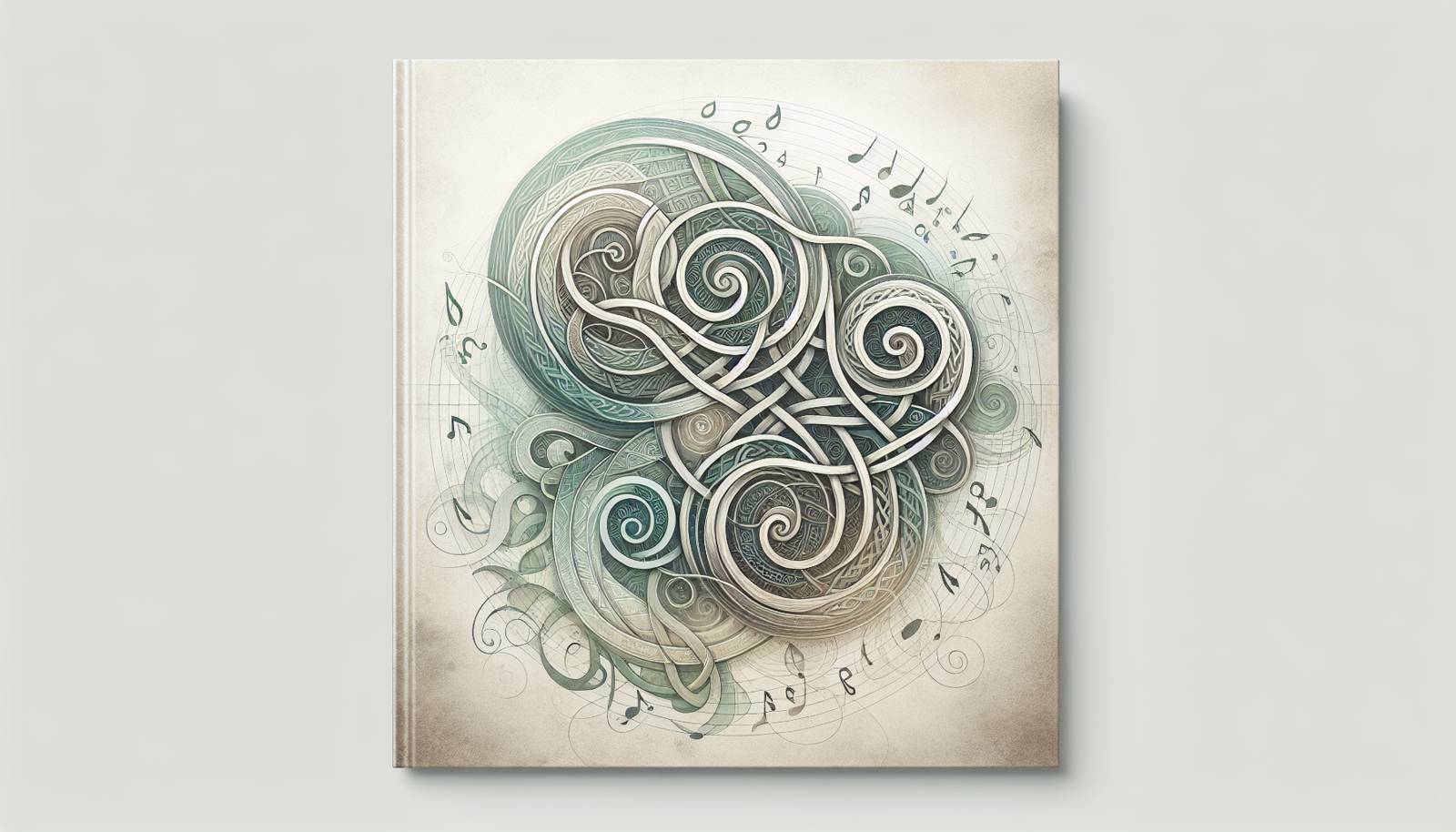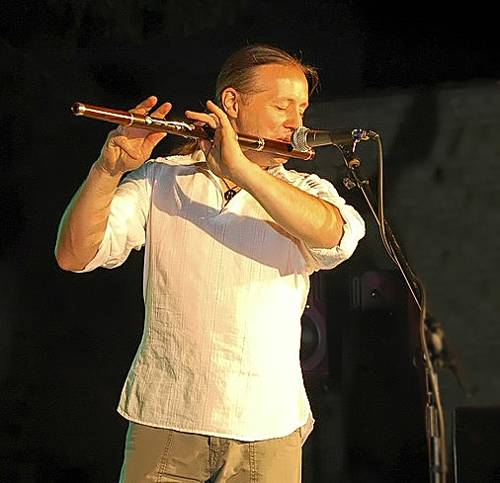
FAQ About The Influence of Celtic Spirituality on Music

What is Celtic spirituality and how does it influence music?
Celtic spirituality refers to the religious beliefs and practices of the Celtic people, which are characterized by a deep connection to nature, a belief in the sacredness of all life, and a rich tapestry of myths and legends. These elements greatly influence music by infusing it with themes of nature, mythology, and mysticism, and by using traditional Celtic instruments like the harp, fiddle, and bagpipes to create a distinctive sound.

Which music genres are most influenced by Celtic spirituality?
Celtic spirituality has influenced a variety of music genres, including folk, classical, and new age. Folk music often incorporates traditional Celtic themes and instruments, while classical compositions might explore mythological stories or natural landscapes inspired by Celtic beliefs. New age music frequently draws on Celtic sounds and atmospheres to create meditative and ethereal experiences.

What are some traditional Celtic instruments commonly used in music influenced by Celtic spirituality?
Traditional Celtic instruments often used in spirituality-influenced music include the harp, fiddle, tin whistle, uilleann pipes, and bodhrán. These instruments are integral to capturing the unique sounds and rhythms associated with Celtic music, which often evoke the culture's historical and mystical elements.

How do Celtic myths and legends play a role in music inspired by Celtic spirituality?
Celtic myths and legends provide rich storytelling material for musicians, offering themes of heroism, love, and the supernatural. Composers and songwriters weave these ancient stories into their music, adding depth and narrative that resonate with the spiritual and cultural heritage of the Celts. This storytelling approach imbues the music with a timeless, almost otherworldly quality.

Can you name some famous musicians who incorporate Celtic spirituality into their music?
Artists such as Enya, Loreena McKennitt, and The Chieftains have all drawn inspiration from Celtic spirituality. Enya’s music, characterized by enchanting melodies and ethereal soundscapes, often features themes of nature and mysticism. Loreena McKennitt blends Celtic mythology with world music influences, while The Chieftains are known for their traditional Irish music steeped in Celtic themes.

How does Celtic spirituality influence the themes of songs in Celtic music?
Celtic spirituality often emphasizes themes such as nature, the divine in everyday life, mythology, and human connection with the divine. Songs inspired by these spiritual elements may explore the beauty of the natural world, delve into mythical stories, or reflect on the interconnectedness of all things. These themes resonate with listeners who are drawn to music with deep cultural and spiritual roots.

In what ways does the historical context of the Celts impact music inspired by their spirituality?
The historical context of the Celts, which involves their migration, cultural exchange, and resistance against various invaders, deeply influences music inspired by Celtic spirituality. These historical experiences contribute to themes of resilience, identity, and a deep reverence for heritage, all of which are reflected in the music's lyrical content and emotive qualities.

Is there a difference between Celtic music and music influenced by Celtic spirituality?
Yes, while Celtic music refers to the traditional music from Celtic nations such as Ireland and Scotland, music influenced by Celtic spirituality encompasses a broader range of genres that draw from the spiritual and mythological aspects of Celtic culture. The latter may incorporate Celtic themes and instruments but is not limited to traditional styles and can include contemporary genres as well.

How does the natural landscape of Celtic regions influence the music inspired by Celtic spirituality?
The natural landscape of Celtic regions, known for their breathtaking beauty and rugged terrain, significantly influences music inspired by Celtic spirituality. Composers and musicians often draw on these picturesque settings to create soundscapes that evoke a sense of place and connection to the earth, reflecting the Celtic view of nature as sacred and spiritually significant.

What role do Celtic festivals play in promoting Celtic spirituality in music?
Celtic festivals, such as the Celtic Colours International Festival or the Festival Interceltique de Lorient, play a crucial role in promoting Celtic spirituality through music. These events showcase performances by musicians who incorporate traditional and contemporary Celtic influences, fostering a greater appreciation for the cultural and spiritual heritage of the Celtic people.

How does the use of the harp reflect Celtic spirituality in music?
The harp is one of the most iconic instruments associated with Celtic music and spirituality. Its soothing and melodious sound has been historically linked to the divine and is often used in compositions that seek to express celestial themes or evoke a sense of peace and tranquility, which are central tenets of Celtic spirituality.

What is the significance of the bodhrán in music influenced by Celtic spirituality?
The bodhrán, a traditional Irish frame drum, is significant in music influenced by Celtic spirituality for its rhythmic and earthy sounds. It is often used to create driving, meditative beats that echo the heartbeats of the earth, aligning with the Celtic spiritual focus on the connection between humanity and nature.

Are there modern artists outside of traditional Celtic regions who are influenced by Celtic spirituality?
Yes, many modern artists outside of traditional Celtic regions are influenced by Celtic spirituality. Musicians across genres have embraced its themes and sounds, integrating them into diverse musical styles, from new age to folk rock, highlighting the universal appeal of Celtic spiritual concepts and music.

How does Celtic spirituality influence lyrical compositions in music?
Lyrical compositions influenced by Celtic spirituality often explore themes of nature, mythology, love, and the mysteries of life. Songwriters may craft lyrics that tell stories of ancient Celtic myths or express a yearning for harmony with the natural world, reflecting the philosophies and poetic traditions of Celtic spirituality.

What is the role of Celtic spirituality in the revival of folk music?
Celtic spirituality has played a significant role in the revival of folk music by rekindling interest in traditional music forms and themes. The resurgence of folk music often includes a renewed focus on authentic expressions of cultural and spiritual identities, with Celtic spirituality providing rich inspiration for songs that delve into folklore, tradition, and the natural environment.

How do Celtic festivals contribute to the spread and appreciation of music influenced by Celtic spirituality?
Celtic festivals serve as a cultural hub for the dissemination and celebration of music influenced by Celtic spirituality. These events attract international audiences, showcasing the diversity and vitality of Celtic-inspired music through live performances, workshops, and cultural exhibits, thereby enhancing global appreciation for Celtic spiritual traditions and their musical expressions.

What impact has Celtic spirituality had on contemporary classical music?
Celtic spirituality has influenced contemporary classical music by inspiring composers to integrate Celtic themes, instruments, and motifs into their works. This fusion creates compositions that echo the mysticism and beauty of Celtic culture while exploring complex musical structures and enriching the classical music repertoire with a spiritual depth.

How do musicians incorporate elements of Celtic spirituality into non-traditional instruments?
Musicians incorporate elements of Celtic spirituality into non-traditional instruments by emulating the sounds and themes of Celtic music. For example, guitarists might use alternate tunings to mimic the droning effect of bagpipes, while synthesizers could recreate the ambience of a Celtic landscape, thus allowing for creative integration regardless of the instrument.

Why is the tin whistle associated with Celtic music and spirituality?
The tin whistle, known for its distinctive high-pitched sound, is closely associated with Celtic music due to its historical use in traditional tunes and dance music. Its simplicity and expressive range make it a popular choice for capturing the joyful and haunting melodies that are often inspired by Celtic spirituality.

How does Celtic spirituality in music address universal themes?
Celtic spirituality in music addresses universal themes by exploring concepts such as the interconnectedness of life, the cycles of nature, and the quest for meaning. These themes transcend cultural boundaries, offering listeners from diverse backgrounds insights into the human experience as reflected through the lens of Celtic spirituality.
